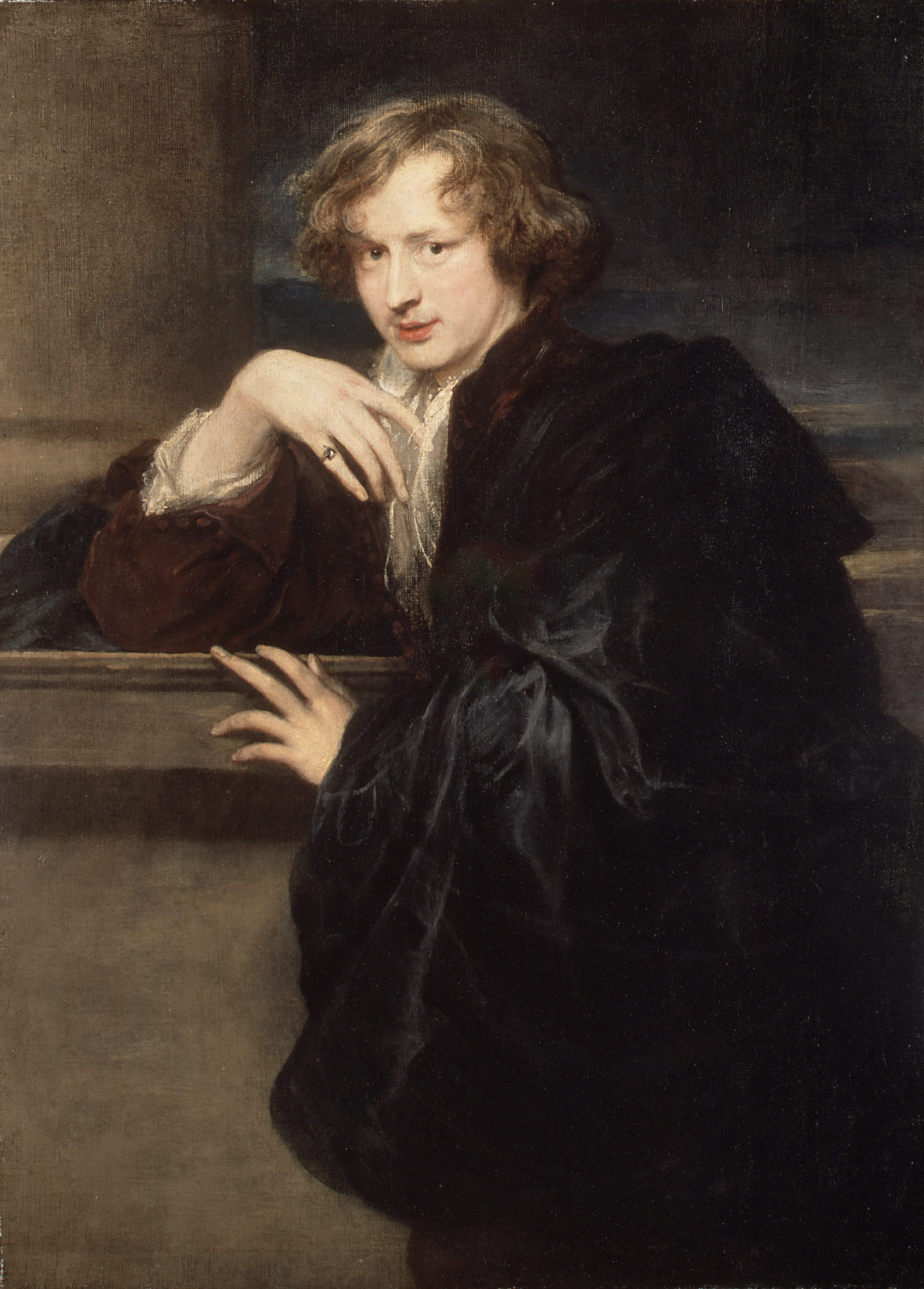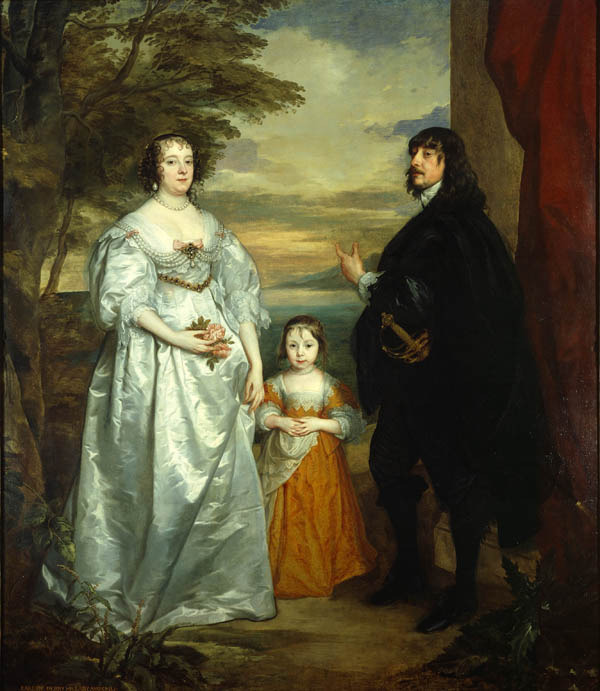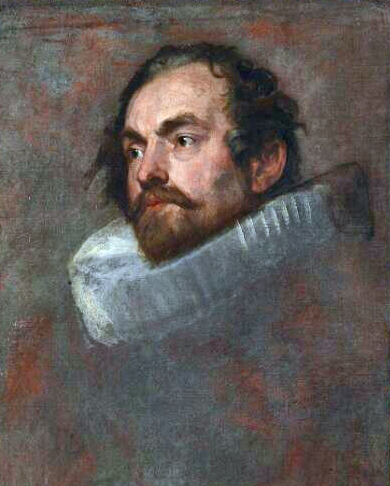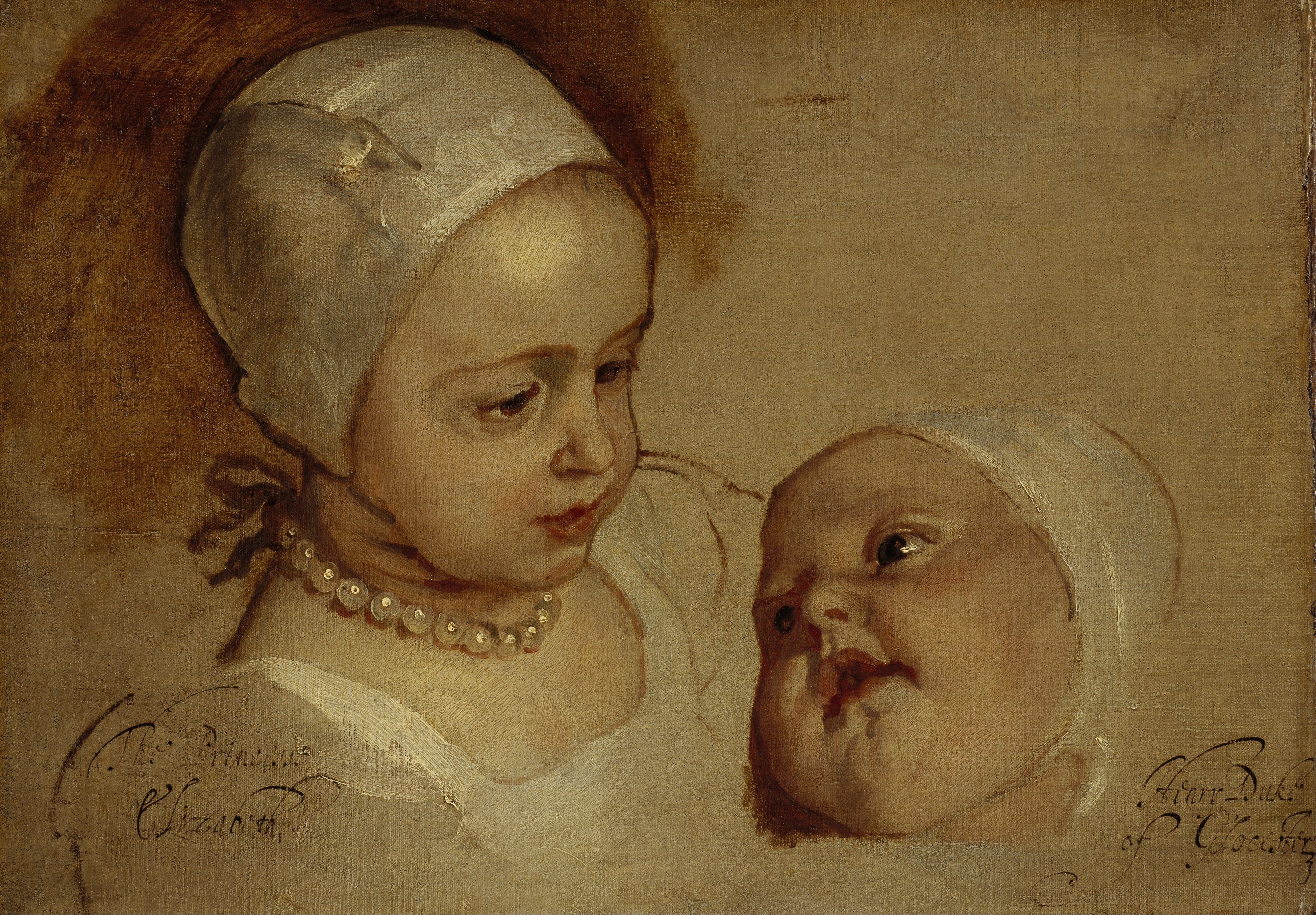Anthony van Dyck(1599–1641), one of the most celebrated and influential portraitists of all time enjoyed an international career that took him from his native Flanders to Italy, France, and, ultimately, the court of Charles I in London. Van Dyck’s supremely elegant manner and convincing evocation of a sitter’s inner life—whether real or imagined—made him the favorite portraitist of many of the most powerful and interesting figures of the seventeenth century.
This is the most comprehensive exhibition ever organized on Van Dyck’s activity and process as a portraitist and the first major exhibition on the artist to be held in the United States in over twenty years. Through approximately one hundred works, the exhibition explores the astounding versatility and inventiveness of a portrait specialist, the stylistic development of a draftsman and painter, and the efficiency and genius of an artist in action.
Lenders include the Palazzo Pitti in Florence, the Kunsthistorisches Museum in Vienna, the British Museum and National Gallery in London, the Prado Museum in Madrid, and major private collectors such as the Duke of Devonshire and the Duke of Buccleuch.
Van Dyck: The Anatomy of Portraiture is organized by Stijn Alsteens, curator of Northern European drawings at The Metropolitan Museum of Art, and Adam Eaker, Anne L. Poulet Curatorial Fellow at The Frick Collection. The exhibition catalogue, copublished with Yale University Press,features contributions by the curators as well as An Van Camp, British Museum; Bert Watteeuw, Rubenianum, Antwerp;and Xavier F. Salomon, The Frick Collection.
The opening section of the exhibition pays special attention to the artist’s working method as recorded in drawings and oil sketches, which grant insight into the moments when he captured a sitter’s likeness and formed the idea for a portrait’s composition. Van Dyck’s virtuosic technique can be seen as much in these preparatory works as in his finished paintings. In a number of cases, the exhibition will reunite for the first time preparatory works with the paintings for which they were made, tracing the evolution of Van Dyck’s pictorial ideas. A small group of unfinished paintings will further illuminate his working method tracing his steps as he made preliminary sketches of apose on paper to working on the canvas itself.
The exhibition includes a number of prints, in which Van Dyck was able to experiment with a medium that suited his artistic temperament, while at the same time enabling a wider dissemination of his most successful likenesses. A highlight of the show will be an installation of works from Van Dyck’s so-called Iconography, a series of portraits of eminent contemporaries, among them fellow artists Inigo Jones and Orazio Gentileschi. Prints from the series and one of the earliest surviving bound albums of the Iconography will be displayed in the main-floor Cabinet, while the downstairs galleries will contain many of the celebrated drawings and grisailles with which Van Dyck prepared this magnum opus.
Also in the downstairs galleries, a small group of drawings by the artist’s contemporaries, including work by his teacher Peter Paul Rubens, will illuminate his artistic lineage andthe uniqueness of his approach to portraiture. Each of the drawings in this group has been at some previous time attributed to Van Dyck; at the same time, a few drawings in the exhibition and catalogue will be newly exhibited as works by Van Dyck.
In providing a compelling argument about the distinctiveness of Van Dyck’s approach to portrait drawings, the exhibition will make a lasting contribution to connoisseurship on the artist.The exhibition will culminate with a selection of more than twenty of Van Dyck’s greatest painted portraits displayed in the Oval Room and East Gallery. These include masterpieces from the Frick’s permanent collection that have been off view for several years and will now be placed in the context of iconic loans from European and American collections. Also in this group will be a selection of lesser-known portraits of extremely high quality from American private and public collections that have not appeared in previous exhibitions on Van Dyck.
This exhibition finds a particularly appropriate home at The Frick Collection, which houses two of the acknowledged masterpieces of the artist’s early career: the portraits of the animal painter Frans Snyders and his wife, Margareta de Vos. The exhibition will offer the chance to reconsider Henry Clay Frick’s acquisition of portraits by Van Dyck, and the broader appeal of the artist to collectors duringthe Gilded Age. This and other themes will be explored in a scholarly catalogue, a lecture series, a symposium, and a study day held in conjunction with the exhibition.
IMAGE LIST
The exhibition includes a number of prints, in which Van Dyck was able to experiment with a medium that suited his artistic temperament, while at the same time enabling a wider dissemination of his most successful likenesses. A highlight of the show will be an installation of works from Van Dyck’s so-called Iconography, a series of portraits of eminent contemporaries, among them fellow artists Inigo Jones and Orazio Gentileschi. Prints from the series and one of the earliest surviving bound albums of the Iconography will be displayed in the main-floor Cabinet, while the downstairs galleries will contain many of the celebrated drawings and grisailles with which Van Dyck prepared this magnum opus.
Also in the downstairs galleries, a small group of drawings by the artist’s contemporaries, including work by his teacher Peter Paul Rubens, will illuminate his artistic lineage andthe uniqueness of his approach to portraiture. Each of the drawings in this group has been at some previous time attributed to Van Dyck; at the same time, a few drawings in the exhibition and catalogue will be newly exhibited as works by Van Dyck.
In providing a compelling argument about the distinctiveness of Van Dyck’s approach to portrait drawings, the exhibition will make a lasting contribution to connoisseurship on the artist.The exhibition will culminate with a selection of more than twenty of Van Dyck’s greatest painted portraits displayed in the Oval Room and East Gallery. These include masterpieces from the Frick’s permanent collection that have been off view for several years and will now be placed in the context of iconic loans from European and American collections. Also in this group will be a selection of lesser-known portraits of extremely high quality from American private and public collections that have not appeared in previous exhibitions on Van Dyck.
This exhibition finds a particularly appropriate home at The Frick Collection, which houses two of the acknowledged masterpieces of the artist’s early career: the portraits of the animal painter Frans Snyders and his wife, Margareta de Vos. The exhibition will offer the chance to reconsider Henry Clay Frick’s acquisition of portraits by Van Dyck, and the broader appeal of the artist to collectors duringthe Gilded Age. This and other themes will be explored in a scholarly catalogue, a lecture series, a symposium, and a study day held in conjunction with the exhibition.
IMAGE LIST
Anthony van Dyck (1599 – 1641) Frans Snyders , ca
Anthony van Dyck (1599 – 1641) Margareta Snyders , ca
1620 Oil on canvas The Frick Collection, New York
Anthony van Dyck (1599 – 1641) Self - Portrait , ca
Anthony van Dyck (1599 – 1641) Portrait of a Genoese Noblewoman (detail) , 1622 – 27
Oil on canvas The Frick Collection, New York
Oil on canvas The Frick Collection, New York
Anthony van Dyck (1599 – 1641) Sir John Suckling , 1632 - 41 Oil on canvas The Frick Collection, New York
Anthony van D yck (1599 – 1641) James, Seventh Earl of Derby, His Lady and Child , 1632 - 41 Oil on canvas The Frick Collection, New York
Anthony van Dyck (1599 – 1641) A Brussels magistrate looking to the right , ca
Anthony van Dyck (1599 – 1641) Nicolaes Rockox , 1636 Oil on panel Private collection
Anthony van Dyck (1599 – 1641) Princess Elizabeth and Princess Anne, 1637 Oil on canvas Scottish National Portrait Gallery








